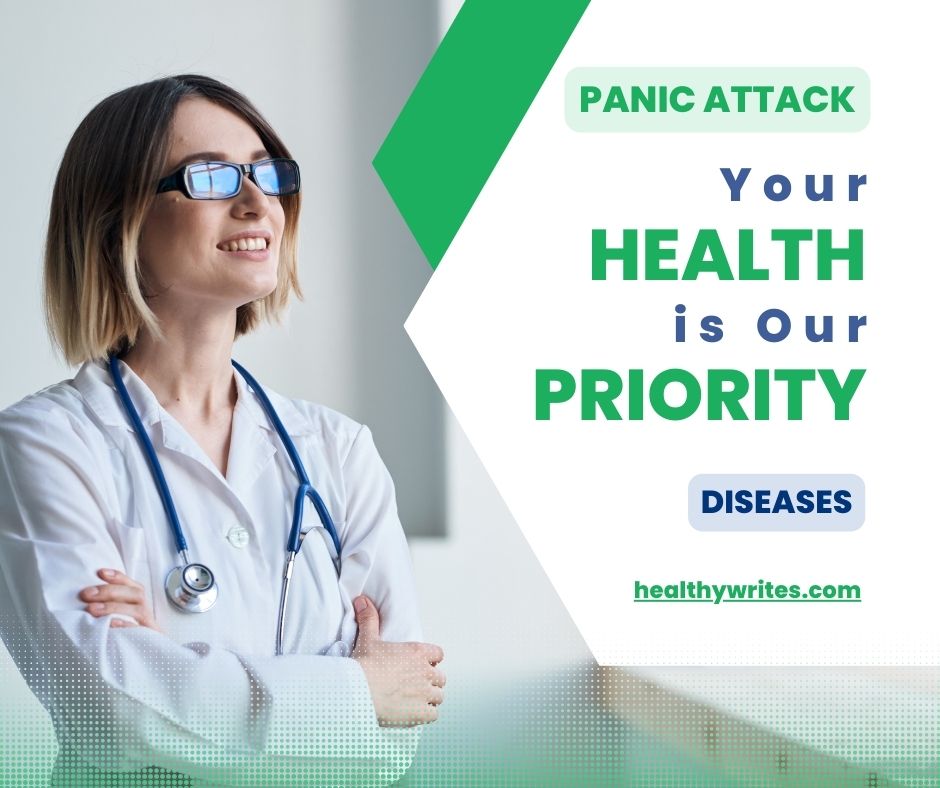A panic attack can be identified by extreme anxiety and neurological signs like shivering, shortness of breath, an accelerated heart rate, and stiff muscles.
Overbreathing, extended durations of stress, physical activities that cause strong physical reactions (such as exercise or excessive coffee consumption), physical changes following sickness, or a rapid change in environment can all be triggers for panic attacks. Numerous therapies, such as medication, psychotherapy, stress management, and relaxation techniques, can be used to treat panic attacks.
A panic attack: what is it?
A panic attack is a brief period of extremely high anxiety that results in the visceral feelings of fear. These can include tense muscles, lightheadedness, shaking, racing heartbeat, and loss of breath. Frequent & random, attacks of panic frequently have no connection to any outside threat.
Prolonged and recurring anxiety attacks may be severely incapacitating without therapy. Fearing a crime, the person may decide to stay away from a variety of settings (including going out or being by themselves).
Panic disorders can strike certain individuals:
For a lot of people, panic attacks only seldom happen during stressful or sick times. Panic disorder is a subtype of this diseases that impacts patients that suffer frequent terror episodes. They frequently experience sudden, recurrent panic attacks and live in constant terror of more attacks.
Signs of a panic episode:
A panic attack may cause the following symptoms: increased alertness to danger;
physical symptoms
The symptoms of anxiety disorders include: thinking erratically and feeling anxious;
- Intense feelings of dread, danger, or foreboding;
- fear of losing control,
- going insane, or dying;
- light headedness and dizziness;
- ingling and chills,
- especially in the extremities or hands;
- trembling or shaking,
- sweating; hot flashes;
- accelerated heart rate;
- chest constriction;
- nausea or abdominal distress;
- tense muscles;
- dry mouth;
and sensations of not being real or detached from the surroundings.
The reaction of “flight or fight”:
When the cerebrum detects an imminent threat, it instructs its autonomous neuron complex to initiate the immune system’s “flight-or-fight” reaction. Adrenaline is among the many pollutants by the circulatory system, resulting in physiological changes.For instance, in order to get ready for physical conflict or fleeing, the heart rate, respiration, and blood flow are all increased.
When the body’s “flight-or-fight” reaction is activated when there has been no danger approaching, that is thought to represent an attack of anxiety. When watching television or falling asleep, for example, or when under other seemingly stress-free circumstances, an individual may suffer signs of a panic attack.
A few reasons that can cause the body to mistakenly initiate the “flight-or-fight” response include the following:
- Persistent stress – this results in the body producing more adrenaline and other stress-related substances then usual.
- Acute stress, which includes going through a distressing incident, can cause the body to abruptly release a lot of stress chemicals.
- Habitual hyperventilation: When blood has insufficient carbon dioxide, it throws off the blood’s gas balance.
- Vigorous physical activity: this may trigger severe reactions in certain individuals.
- Disease: may result in physical modifications.
- An abrupt shift in surroundings, as entering a crowded, stuffy, or heated space.
Reasons besides anxiety
Some illnesses may result in most of those typical manifestations of anxiety. Additionally, many substances and medications, such alcohol and caffeine, can cause sensations that are comparable to panic attacks.
Always consult a professional
If you are unsure if your symptoms or those of someone else point to a panic attack, you should always seek medical help.When there’s an emergency, dial triple zero (000) to summon a medical vehicle.
When you are interested having the repeated physical indications related to dread examined, it is imperative that you see your doctor.
- diabetes;
- asthma;
- inner ear complaints;
- a high level of (overactive thyroid gland);
- cardiac (heart) complaints;
- afterwards (after childbirth) hyperthyroidism.
Self-care recommendations
The following are some tips for handling a panic attack:
- Don’t engage in “self-talk” that draws focus on your symptoms; for example, don’t urge yourself to “stop panicking” or “relax.”
- Keep in mind that although uncomfortable, anxiety attacks are not life threatening. tell yourself that nothing horrible happen to you and that you have experienced companion emotions in the past.
- Direct your attention away from your symptoms and towards another issue. Try counting backwards in threes from 100, remembering the lyrics to your favourite song, or focusing on the sights and noises in your immediate environment as ways to divert your attention.
- Running away from the issue will simply serve to confirm that you are experiencing unbearable anxiety episodes. Sitting and waiting for the signs to get away give us more self-assurance in your handling skills.
Alternatives for medical care:
When medical conditions like diabetes or hyperthyroidism are treated appropriately, the recurrence of panic-like feelings can be prevented if these conditions are the origin of one’s anxiety-related symptoms.
Treatment options includes medication if anxiousness is the cause of the episodes.
- learning how to solve problems;
- taking care of one’s nutrition,
- exercise routine, and sleep patterns;
- biofeedback therapy;
- stress management strategies;
- relaxation techniques;
- psychotherapy, especially behavioral therapy.
What impact do panic episodes have on your life?
Your ability to manage daily life, hold down a career, and interact with people may become increasingly difficult as your panic worsens and attacks persist longer. It’s possible that you are feeling confined or that you’re afraid to enter certain areas.
Where to Look for Assistance
- A psychologist; your general practitioner;
- The local community health facility
- The Mental Health Association
To sum up:
It is feasible for terrorist thoughts to strike out of nowhere, causing intense physical reactions, notable alterations in behaviour, and a persistent fear of another attack. The continual concern of having another panic attack might affect everyday activities and overall health.

6yo9gq
bew0za
b5spj7